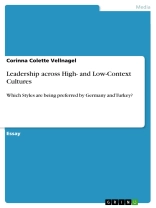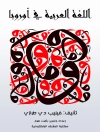Essay from the year 2011 in the subject Communications – Interpersonal Communication, grade: Outstanding, The University of Surrey, language: English, abstract: When you think of great leaders, names like Nelson Mandela, Martin Luther King, Bill Gates, Barack Obama or Gordon Brown may come up. But what makes a leader a good leader? Being a good leader requires a lot of things and therefore not everybody can be a successful leader. “Leaders can be born, elected, or trained and groomed; they can seize power or have leadership trust upon them” (Lewis: 2006, p.104). They can be democratic or autocratic, individual or collective, ascribed or merit-based, imposed or desired (Lewis: 2006). Consequently, there is no such thing as a perfect leadership style which works in every situation and with all followers; there usually is no ideal way of leading – there is only a better or worse way (Larkin: 2008). That is one of the reasons why a good leader needs to have the ability to use many different styles in order to succeed (Broadbent, Kitzis: 2005). It is a false conclusion that the well-adopted hard skills of a manager inevitably lead to economic success. Those hard skills form the foundation of a strong, effective and recognized leader, but nowadays further acquirements are an absolute must. Endurance, universalism, knowledge of human nature, communications, collaboration and work input are inevitable (Eckert, Drath: 2009). Additionally to the fact that it is in any case difficult to find the ideal style for every situation and every follower, cultural differences set up another challenge: communication styles, gender, uncertainty avoidance, power distance, individualistic versus collectivistic, etc. play an important role if it comes to finding the most ideal style (Ledlow, Coppola: 2011). Several scientists support the idea of “a culture specific view of leadership indicating that unique cultural” (Paṣa, Kabasakal, Bodur: 2001, p.565) traits such as religion, language and values require explicit leadership approaches in unequal societies.
Corinna Colette Vellnagel
Leadership across High- and Low-Context Cultures [PDF ebook]
Which Styles are being preferred by Germany and Turkey?
Leadership across High- and Low-Context Cultures [PDF ebook]
Which Styles are being preferred by Germany and Turkey?
购买此电子书可免费获赠一本!
语言 英语 ● 格式 PDF ● ISBN 9783640956258 ● 文件大小 0.6 MB ● 出版者 GRIN Verlag ● 市 München ● 国家 DE ● 发布时间 2011 ● 版 1 ● 下载 24 个月 ● 货币 EUR ● ID 3926808 ● 复制保护 无












